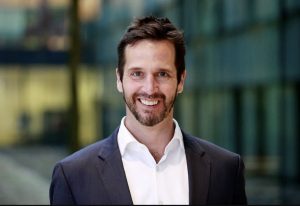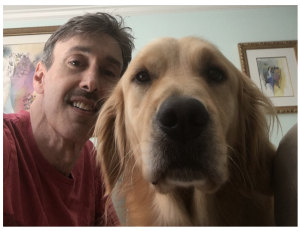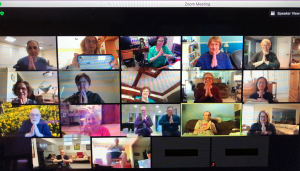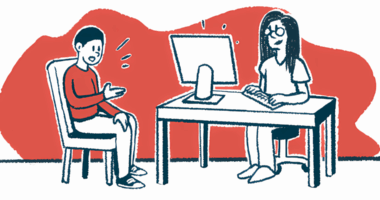Adira Foundation Arises From Life-altering Accident to Help Those With Chronic Ills

Greg Smiley’s world changed abruptly in 2013. He was racing down a mountain road on an outback cycling trip in South Africa, when he hit an obstruction in the road and fell face-first onto the pavement, still clipped to his bike.
The impact did considerable damage, including a potentially disfiguring injury from the bridge of his nose down to his chin.
That started a multiyear — and multifaceted — journey of recovery for Smiley, during which the seed for a new nonprofit was planted. This idea ultimately culminated in the Adira Foundation, founded in 2019 and focused on finding commonalities to solve complex issues across five neurodegenerative diseases, including multiple sclerosis.
Managing his medical team — a plastic surgeon, maxillofacial surgeon, prosthodontist, trauma counselor, and periodontist — while dealing with continual nerve pain that Smiley described as a “solid seven to eight” out of 10, made him feel alone, to the point he even thought of ending his life.
The ordeal, he said, opened his eyes to the struggle faced by many who have complex medical conditions, especially those with limited resources.
Smiley, who formally was a strategic interventions adviser to the Joint United Nations Programme on HIV/AIDS, thought the UN’s collaborative approach could be applied to the nonprofit world. He decided to create Adira, named after the Hebrew word for “strong, noble, powerful,” to go after problems shared among disease communities.
Adira’s goal is to take larger bites out of difficult issues within the fragmented U.S. healthcare system, through the help of nonprofits that foster collaboration.
“If we keep trying to do patchwork solutions to big problems, we’ll just get a quilt of patches,” said Smiley, 50, who serves as the foundation’s CEO.
With this approach, Adira is working toward better solutions for care among ALS, Alzheimer’s and related dementias, Huntington’s, and multiple sclerosis, as well as Parkinson’s patients.
He sees Adira employing a diagonal strategy. Vertical programs are disease-specific, whereas horizontal ones are extremely broad. In an ideal world, Adira would strike down systemic and disease-specific problems with one stone.
“We wanted to take on something large, something that was growing in prevalence and costs and burden,” Smiley said, when asked why the foundation focused on these five disorders in particular. His sister also has MS, and members of the board are caregivers of people with Huntington’s and Parkinson’s.
Step one in Adira’s strategy is listening sessions with patients, caregivers, and family members, which can help sort out issues common to the disorders. Then it directs grant money to collaborative organizations that work to solve problems spotted.
Because of COVID-19, these listening sessions are quite different from what was initially expected. People contribute over Zoom, participate in surveys, and simply tell their life stories. Adira will eventually add a response section on its website and will continue to monitor the conversation on social media.
Listening sessions with the neurodegenerative disease communities yielded three priorities: caregiver mental health, coordination of care, and sharing resources.
In its first round, the organization distributed $100,000 in grants to 12 organizations to support COVID-related programs. Its second and most recent round allocated $360,000 to five programs under the umbrella of “pervasive needs” grants.
One awardee, the Chronic Care Collaborative, includes 40 volunteer health organizations based in Colorado that focus on legislative advocacy and affordable healthcare. Seven of these volunteer groups are part of the neurodegenerative community.
“Patients with really complex medical conditions can really start to fall through the cracks the more their care is siloed,” said Sara Froelich, CEO of the collaborative.
The $75,000 it received will go toward a care coordination program for people in Colorado who are navigating Alzheimer’s, ALS, Huntington’s, MS, and Parkinson’s.
This initiative will be modeled on a pilot program called Carol’s Wish Financial Navigation Program that assisted gynecologic cancer patients with navigating the costs of treatment. With $32,000 in funding from Rose Community Foundation, this program was able to help 247 patients who, according to Froelich, saved an average of $231 over a period of six months.
With the Adira grant, Froehlich is hoping to help even more people with neurodegenerative diseases.
Other groups given grants in this latest competitive funding round are the Bangor Region YMCA, Compassionate Care ALS, Family Caregiver Alliance, and I Am ALS.
Grants in the first round were awarded to the ALS Association DC/MD/VA Chapter; American Parkinson Disease Association; BakerRipley; Chronic Care Collaborative; Huntington’s Disease Society of America; HD Reach; InMotion; National Multiple Sclerosis Society; New Horizons Service Dogs; Parkinson’s Resources of Oregon; Rocky Mountain MS Center; and University of Colorado, Anschutz Medical Campus Department of Neurology, Section of Neuro-Palliative Care.
While Adira’s grant programs are a large part of the organization’s focus, it has also developed several “demonstration projects.” Examples, still in early stages, include a Wiki-like website for caregiver resources, and a directory of services for those with neurodegenerative disorders.
“We are piloting inventive ideas in a small scale to see what we can learn before then trying to apply it more broadly to more people,” Smiley said.
Smiley remembers well how alone and overwhelmed he felt during his recovery from life-altering injury. Now he’s giving back with Adira, so others might have an easier time navigating their own health challenges.
What is most important moving forward, he said, is pivoting to patient needs as they arise.
“What they need today isn’t what they’re going to need three months from now, and it isn’t going to be what they needed a year ago,” Smiley said. “If we can maintain a fluid liquid conversation with them to attest over again what their top priorities are, then that’s where we’ll lean.”









